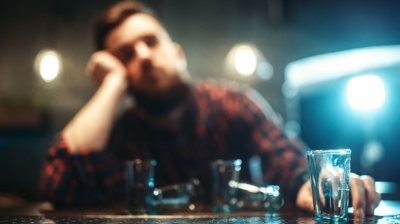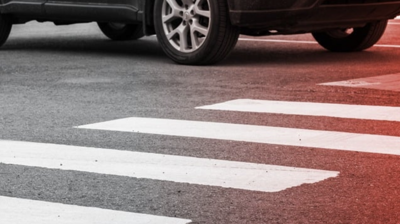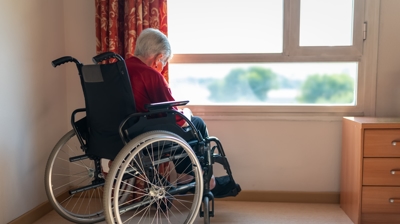After a car accident, it’s easy to feel overwhelmed and make snap judgments that could thwart your legal and financial claims.
In these high-stress moments, there’s little room for error. This blog post will guide you through the key missteps to sidestep after a crash.
Immediately after a car crash
The immediate aftermath of a car accident can be chaotic and stressful. Your mind races with questions and concerns, and it can be challenging to make the right decisions. However, the steps you take immediately after the accident can significantly impact any subsequent legal or insurance proceedings.
It’s vital to stay composed, stick around at the scene, get law enforcement involved, and steer clear of premature admissions of fault right after an accident. Knowing these steps can help protect your rights and position in any related legal or insurance proceedings, impacting claims and potential lawsuits.
1. DON’T prematurely leave the scene
The chaos and shock of a car wreck can sometimes lead to hasty decisions. One such error is prematurely leaving the car accident scene. Not only is this illegal, but it can also lead to criminal prosecution, including fines, suspension of driving privileges, or even imprisonment depending on the severity of the incident.
Staying at the scene has another significant benefit: it facilitates the proper documentation and collection of required information to construct a legal case against the party at fault. Leaving the scene can hinder your potential for monetary recovery and might allow comparative negligence claims, potentially diminishing or preventing recovery of damages.
2. DON’T leave law enforcement out of the equation
In Missouri, you have a legal obligation to call the police if an accident results in injuries or significant property damage. Getting law enforcement involved guarantees professional documentation of the incident, which provides an official account that can expedite the insurance claim process.
In court, a police report could turn into a critical piece of evidence, which may sometimes contain the officer’s views on who’s at fault. Police officers document the crash scene, investigate the accident, and note potential causes, all of which are crucial for determining who is liable for the incident.
Even after a minor fender bender, you should file a police report, as it covers any potential issues that might crop up later, including unseen damages.
3. DON’T admit fault
In the heat of the moment, it can be tempting to apologize or admit fault, even if just out of politeness. However, admitting fault for a car accident can create evidence of liability affecting future claims, insurance coverage, and lawsuit outcomes.
Providing an honest account of the accident to police is essential, while avoiding any admissions of guilt to insurance companies as it can be misconstrued as fault, affecting compensation claims. Not admitting fault at the scene ensures that your rights to compensation are protected, regardless of whether the at-fault driver attempts to place blame on you.
When exchanging documentation
Documenting the correct details at a car accident scene is critical for protecting your rights and establishing liability. Having accurate documentation improves the chances of obtaining a fair settlement in a personal injury claim.
You should promptly gather evidence like:
- Eyewitness testimony
- Medical bills and records
- Police reports
- Photos and videos
- Journal entries
This will prevent them from getting lost or destroyed, which could weaken your case. It is crucial to avoid exaggerating or being dishonest about the extent of injuries or damages, as this can harm the credibility of your claim if discovered upon investigation.
4. DON’T forget to take photos
We live in a digital age where most of us have a high-quality camera within arm’s reach – our smartphones. Using this tool to document the scene of an accident can be invaluable when it comes time to negotiate with insurance adjusters or prove your case in court.
Photographs can provide clear, unbiased evidence of the severity of the accident and the extent of damages. They can capture multiple angles and close-up shots of any damage to the vehicles involved and any visible injuries. Including a diagram of the accident scene with photos and videos can provide a clearer understanding of the event in a personal accident report.
5. DON’T be shy about collecting information
Collecting as much information as possible is crucial right after a car accident. This includes not only information about the other driver but also about the scene of the accident, the vehicles involved, and any witnesses.
Beyond the basics of names, contact information, and insurance details, you should also note the type, color, and model of the other vehicles involved, the exact location of the accident, and any potential witnesses.
6. DON’T forget about witnesses
Witnesses can provide a crucial third-party perspective on a car accident, offering an unbiased account of the incident. Their testimonies can be especially important when the involved parties have differing accounts of what transpired.
If possible, written witness statements are preferable. Witnesses can include:
- Other drivers
- Passengers
- Pedestrians
- Residents with CCTV footage
Be sure to obtain their names, addresses, and contact details for future reference.
Communication after the accident
Communicating after an accident, particularly with insurance companies, can be a minefield of potential hazards. Insurance companies have vast experience dealing with claims and often have strategies in place to minimize the amount they pay out.
During communication with insurance adjusters, it’s important to:
- Remain calm, polite, and concise to prevent misinterpretation or manipulation
- Avoid elaborating beyond the necessary facts when discussing the accident, particularly with the insurance company
- Be honest, but seek legal counsel before making any statements that could be used against you as an insurance adjuster.
7. DON’T deal with the other driver’s insurance company by yourself
Dealing with the other party’s insurance company can be an intimidating process. They may try to disprove your claim or minimize the payout. That’s why it’s crucial to have legal representation when communicating with the other driver’s insurance company.
You should consult a car accident lawyer to safeguard your rights and avoid claim disputes before starting any conversation with the other driver’s insurance company. Statements given to the at-fault driver’s insurance company can be used to shift blame and reduce your compensation, which is why providing them without legal counsel is not recommended.
8. DON’T provide recorded statements without an attorney present
Insurance companies may request a recorded statement from you after an accident. While this may seem like a standard part of the process, it’s important to remember that you’re under no obligation to provide one without your attorney present. Giving a recorded statement without counsel may lead to the victim sharing information that could undermine their compensation claim.
Recorded statements can be used to find inconsistencies or to downplay claims, heightening the risk of reduced compensation.
Health and legal decisions
After a car accident, it is important to seek medical attention immediately, even if you feel fine. This is to ensure that any potential injuries are promptly addressed. Some injuries may not be immediately apparent and could emerge later on.
9. DON’T skip the doctor
Even if you think you’ve escaped a car accident unscathed, it’s still crucial to seek medical attention immediately. Some injuries, like whiplash or concussion, often have delayed symptoms that may not manifest immediately after the accident.
The body’s adrenaline response to an accident can mask injury pain, which becomes noticeable only once the body’s chemicals return to normal levels. Moreover, delayed symptoms in injuries like whiplash or head trauma can lead to long-term complications.
10. DON’T hesitate to talk to an attorney if you need one
For car accidents that result in injuries or property damage, delaying legal consultation can significantly affect a victim’s ability to recover fair compensation. We often avoid seeking legal consultation because we don’t want to “rock the boat” or we feel like an attorney might complicate the financial situation, when in fact, NOT contacting an attorney can make your financial situation worse.
Consulting a personal injury attorney from a reputable law firm promptly can help ensure that car accident victims’ legal rights are protected and the case is framed effectively for negotiations or trial. Not hiring a lawyer can leave a car accident victim vulnerable to insurance company tactics aimed at reducing payouts.
During the claims process
The claims process after a car accident can be complex and confusing. Missteps during this process can significantly impact the amount of compensation you receive for your injuries and damages.
11. DON’T delay to report your accident
It’s vital to report your accident to your insurance company without delay. Not only does it initiate the claims process, but it can also help reduce claim-related costs.
Late reporting of accidents to your insurance company can increase claim costs up to 51%. Having all necessary information available during the initial report to your insurance company is essential for a smooth and accurate claims process.
12. DON’T accept a quick settlement offer
A fast settlement offer from an insurance company might appear as a welcome relief after a car accident. However, these offers often fail to take into account the full extent of the victim’s injuries and damages.
Settling too quickly with an insurance company can lead to inadequate compensation as the full scope of injuries may not be immediately apparent. Early settlement offers may not fully account for the extent of injuries, possibly resulting in inadequate coverage for:
- Medical expenses
- Lost wages
- Pain and suffering
- Property damage
It is important to carefully consider any settlement offers and consult with a personal injury attorney to ensure that you receive fair compensation for your injuries.
Need legal help? Contact Niemeyer, Grebel and Kruse today
If you’ve been in a car accident, you should seek legal help right away. The St. Louis car accident attorneys at Niemeyer, Grebel and Kruse are experienced in navigating the complexities of car accident cases. Don’t let a car accident turn your life upside down.
Call us today at (314) 350-1900 and let us help you get the compensation you deserve.






